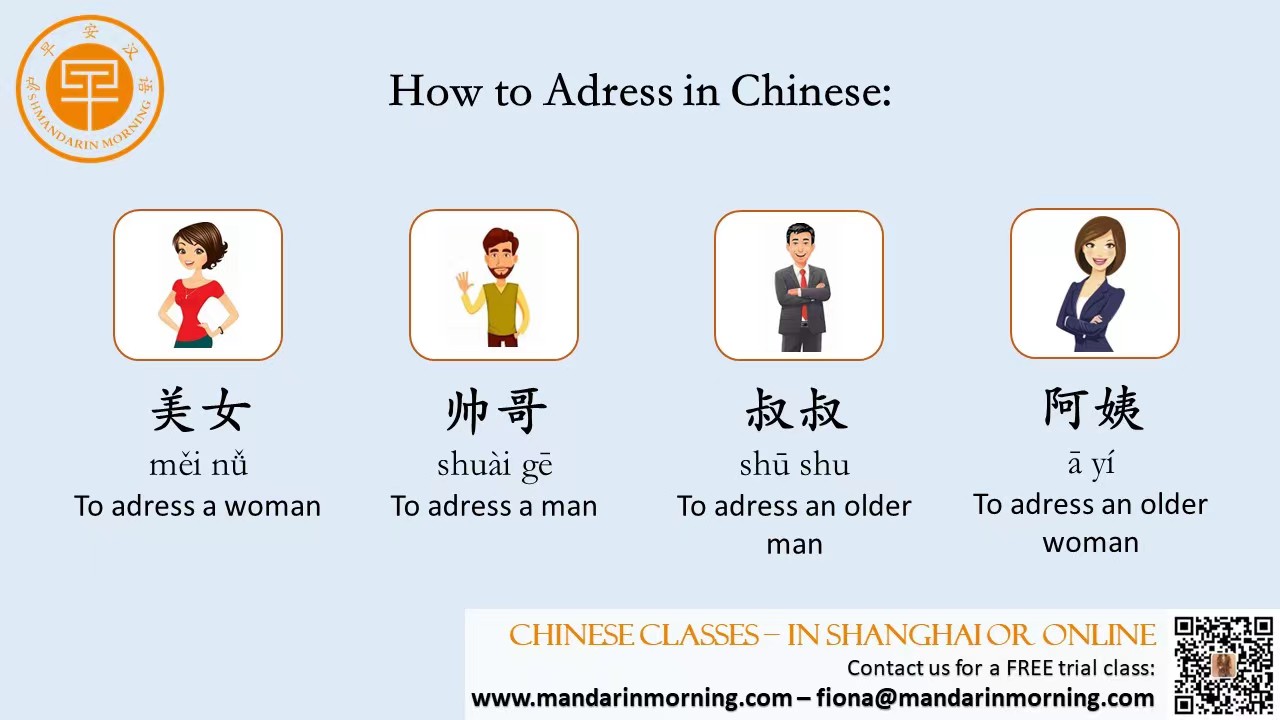| Coming to China, you may have noticed the importance of addressing people and learning about etiquette and traditions. Depending on your age, whether you are male or female, and in what capacity you’re meeting somebody, you will be addressed as something else. For example, women are often addressed as ‘美女 (měi nǚ)’ which literally translates to ‘beautiful woman’. In most western countries it would be pretty creepy. But in China it is just a polite form of address.  Others you’ll come across in day-to-day life include: 帅哥 – shuàigē: Used towards a male in a friendly way (lit. handsome guy) 大哥 – dàgē: Said towards any male to show respect 小姐姐 – xiǎo jiějie: This is a newer term that crept up in Chinese social media, said to younger women 师傅 – shīfù: A term of respect said towards workers e.g. taxi driver 叔叔 – shūshu: A term of respect said to an older male person 阿姨 – āyí: Said to older women 同事 – tóngshì: You’ll hear this at work, meaning ‘colleague’ 老板 – lǎobǎn: A respectful address to a shopkeeper or boss 服务员 – fúwùyuán: Said to a waiter or waitress in a restaurant or other customer service personnel 老师 – lǎoshī: To address teachers, professors or schoolmasters Interestingly enough, you will also hear Chinese people referring to their “brothers 哥哥 gēge” and “sisters 姐姐 jiějiě” meaning that they are just close friends, but not actually family members. So, it is always confusing when someone introduces a group of guys as their “brothers” and you wonder just how many kids are in their family…! This is also said for “Uncle 叔叔 shūshu” and “aunt 阿姨 āyí”. |